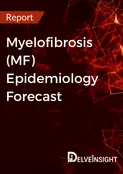Myelofibrosis constitutes a significant yet underrecognized challenge within global hematological disease management, representing a chronic myeloproliferative disorder that progressively destroys bone marrow architecture through pathological fibrosis development. This devastating condition fundamentally disrupts hematopoietic homeostasis, creating cascading health consequences that extend far beyond initial marrow dysfunction. The disease emerges through primary pathogenesis or secondary transformation from related myeloproliferative neoplasms, presenting diverse clinical manifestations that challenge healthcare systems worldwide. Strategic advancement in Myelofibrosis epidemiology understanding becomes crucial for addressing global health disparities, improving access to care, and developing culturally appropriate intervention strategies.
Contemporary epidemiological investigation reveals complex disease distribution patterns influenced by socioeconomic determinants, healthcare infrastructure, genetic diversity, and environmental factors that vary dramatically across global populations. The rare disease classification often masks substantial population impact, particularly in resource-limited settings where diagnostic capabilities, specialist availability, and disease awareness remain inadequate. These epidemiological blind spots create profound inequities in disease recognition, treatment access, and health outcomes across different populations.
Age-related incidence patterns demonstrate concentrated occurrence among older adults, particularly individuals aged 60-80 years, though younger patients occasionally present with aggressive disease variants. Cultural attitudes toward aging, healthcare-seeking behaviors, and symptom interpretation significantly influence diagnostic timing and treatment initiation across different societies. Initial symptom complexes including debilitating fatigue, blood count abnormalities, constitutional symptoms, abdominal distension, and weight loss often receive varying interpretation based on cultural context and healthcare accessibility.
Disease progression creates increasingly complex medical challenges that strain healthcare systems and family resources. Myelofibrosis Patients require sophisticated medical management including regular transfusion support, infection prevention protocols, bleeding complication management, and careful monitoring for leukemic transformation. These intensive care requirements create substantial barriers for patients in settings with limited healthcare infrastructure or financial resources.
Genetic characterization through identification of JAK2, CALR, and MPL mutations has transformed diagnostic capabilities, though access to molecular testing remains severely limited in many global regions. Population genetic studies reveal significant variation in mutation frequencies across ethnic groups, suggesting possible genetic susceptibility differences that influence disease presentation and progression patterns. However, comprehensive genetic epidemiology remains incomplete due to testing accessibility limitations in diverse populations.
Healthcare system capacity dramatically influences documented Myelofibrosis prevalence statistics across different countries and regions. High-income nations with advanced diagnostic infrastructure, comprehensive cancer surveillance, and specialized hematology programs consistently report higher case identification rates. Middle and low-income countries face substantial challenges including limited specialist training, inadequate laboratory facilities, and insufficient funding for complex diagnostic procedures.
Environmental and occupational risk factor assessment reveals potential exposure disparities across different populations and economic sectors. Industrial exposures, agricultural chemicals, radiation sources, and occupational hazards may contribute to disease development, though definitive epidemiological evidence remains limited. Populations in developing regions may face higher exposure risks due to inadequate occupational safety standards and environmental protection measures.
Disease burden analysis encompasses not only clinical outcomes but also social, economic, and cultural impacts that vary significantly across different societies. Family structures, social support systems, economic resources, and cultural beliefs about illness influence patient experiences and outcomes. Traditional medicine practices, religious beliefs, and cultural attitudes toward chronic disease management create complex interactions with modern medical approaches.
Surveillance infrastructure for tracking Myelofibrosis Incidence varies dramatically between developed and developing healthcare systems. Comprehensive cancer registries, electronic health records, and population-based studies provide robust data in advanced healthcare environments, while resource-limited settings often lack systematic disease monitoring capabilities.
Global health initiatives must address fundamental disparities in disease recognition, diagnostic access, treatment availability, and supportive care resources. International collaboration, technology transfer, capacity building, and sustainable funding mechanisms become essential for reducing global health inequities in myelofibrosis management.
Future epidemiological research requires inclusive approaches that encompass diverse populations, cultural contexts, and healthcare environments. Collaborative international networks must integrate local expertise, cultural sensitivity, and resource considerations to develop comprehensive understanding of global disease patterns and effective intervention strategies that benefit all populations regardless of geographic location or economic status.
Latest Reports Offered by Delveinsight:
Cart-related Neurotoxicity Market | Eosinophilia Market | Interbody Cages Market | Mammography Devices Market | Moderate Psoriasis Market | Pelvic Organ Prolapse Market | Phenylketonuria Market | Skin Burns Market | Transfusion-dependent Thalassaemia Market | Cancer Vaccines Market | Cardiac Monitoring System Market | Celiac Disease Market | Desmoplastic Small Round Cell Tumors Dsrcts Market | Esophageal Cancer Market | Fetal And Neonatal Monitoring Devices Market Market | Gender Dysphoria Market | Her3 Market | Hernia Repair Devices Market | Neurofibroma Market | Non Alcoholic Fatty Liver Disease Nafld Market | Nosocomial Infections Market | Oxygen & Hyperbaric Oxygen Equipment Market | Parkinson’s Disease Market | Phototherapies For Psoriasis Market | Spinal Cord Stimulators Market | Tbi Market | Vascular Graft Devices Market | Vulvar Cancer Market
Latest Reports:
https://www.delveinsight.com/report-store/wide-neck-bifurcation-intracranial-aneurysms-market
https://www.delveinsight.com/report-store/connected-health-and-wellness-solutions-market
https://www.delveinsight.com/report-store/demineralized-bone-fiber-technology-market
https://www.delveinsight.com/report-store/pigment-epithelial-detachment-market
https://www.delveinsight.com/report-store/electrophysiology-diagnsotic-catheters-market
https://www.delveinsight.com/report-store/thrombocytopenia-market-2027
https://www.delveinsight.com/report-store/ophthalmic-surgical-devices-market
https://www.delveinsight.com/report-store/chronic-brain-damage-market
https://www.delveinsight.com/report-store/nerve-sheath-neoplasms-market
https://www.delveinsight.com/report-store/echocardiography-devices-market
About DelveInsight
DelveInsight is a trusted provider of life sciences and pharmaceutical market research and consulting, offering actionable insights that empower organizations to make informed decisions. With a commitment to delivering strategic intelligence, DelveInsight serves as a key partner to global pharmaceutical, biotechnology, and healthcare companies looking to excel in an evolving market landscape.
Contact Us
Kanishk
Email: kkumar@delveinsight.com

